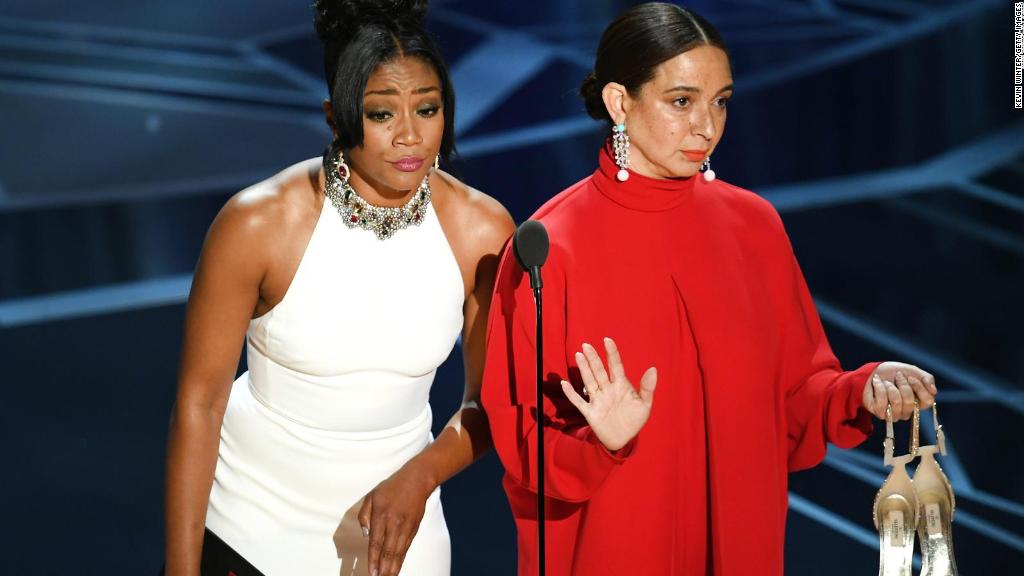
In her Oscars acceptance speech, Frances McDormand made an unusual request: She wants Hollywood actors to put inclusion riders in their contracts.
That kind of clause would require producers to cast actors who represent the demographics of where the film takes place. They would consider actors' gender, race, sexual orientation and physical abilities. The riders could also stipulate that the producers try to hire a diverse behind-the-scenes crew, according to the Annenberg Inclusion Initiative, a think tank that studies diversity in entertainment. The initiative is part of the University of Southern California Annenberg's School for Communication and Journalism.
"The goal here is really to disrupt the bias that takes place in auditioning and casting on screen, and interviewing and hiring below the line, behind the camera," USC professor Stacy L. Smith told CNN on Monday. She was one of the concept's creators, and she has researched the underrepresention of women and minorities in films.
"I think our goal as a team as we've been working on this is really the hope that the agencies will make this an option for every actor, male and female, from all backgrounds," she added.
Smith wrote about the "equity rider" in a guest column for The Hollywood Reporter in 2014. She said at the time that the clause could require that minor characters in a film "should match the gender distribution of the setting for the film, as long as it's sensible for the plot."
If A-list actors who worked across the 25 top films in 2013 had made that change, she wrote, "the proportion of balanced films (about half-female) would have jumped from 16 percent to 41 percent."
"Imagine the possibilities if a few actors exercised their power contractually on behalf of women and girls," she added.
Smith elaborated on the concept in a 2016 TED talk.
She said that a typical film has about 40 to 45 speaking roles in it, adding that only about 10 of those are relevant to the story.
"The remaining 30 or so roles, there's no reason why those minor roles can't match or reflect the demography of where the story is taking place," she said.
Smith said Monday that the contract provision would carry a penalty for the distributor or studio if it does not meet the inclusion goals for staffing small or supporting roles.
Behind-the-scenes interviewing and hiring would be handled somewhat differently, she added. The contract language does not include a penalty if those roles are not staffed by diverse hires. But it does call for a "good faith effort" to consider women and people of color for some film jobs, like cinematographer or composer.
The clause would purposefully give an A-list actor more negotiating power, Smith added. And because that person's involvement in a movie usually carries a lot of weight and influence, Smith said that his or her willingness to use an inclusion rider could ensure that people of all backgrounds are at least considered for a part in the production.
Smith would not provide the specific language in the rider to CNN, but said that it has been given to "notable actors, writers and directors." She also said that it has been used, but would not disclose by whom or on which films.
McDormand told reporters backstage after her best actress Oscar win that she had just learned about the concept last week.
"The fact that I just learned this after 35 years of being in the business, we're not going back," she said.
The actor said diversity has been treated as a trend in the industry, and called on that to change.
"The whole idea of women trending. No. No trending," McDormand said. "African Americans, trending? No, no trending. It changes now, and I think that an inclusion rider will have something to do with that."
The concept also gained support from Brie Larson, who won the Academy Award for best actress two years ago.
"I'm committed to the Inclusion Rider," she tweeted. "Who's with me?"


